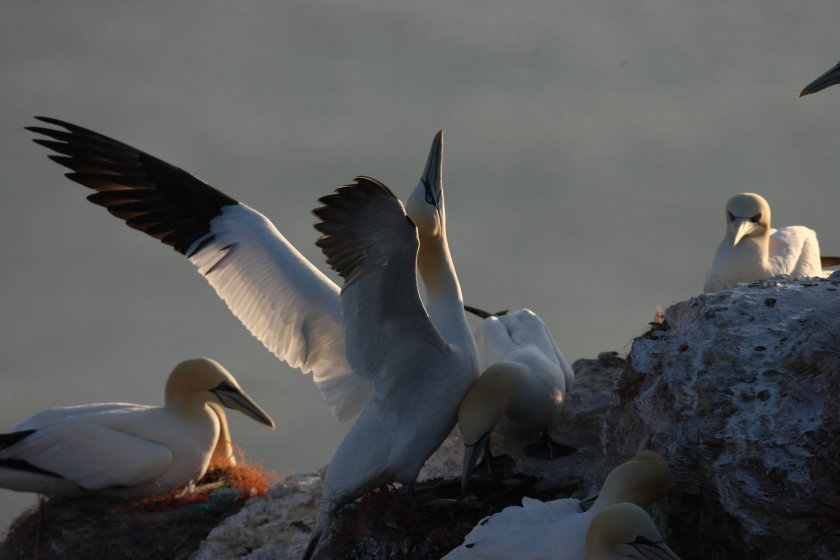
Some seabirds are now showing immunity to bird flu, UK scientists have discovered, with further research to explore the evolution of the virus and the ability to predict new strains.
As part of a major research consortium announced last June, scientists at the Animal Plant Health Agency (APHA) have discovered that seabirds are demonstrating immunity to avian influenza.
The eight-strong FluMap consortium developed laboratory tools that can dissect the immune response in birds that have been exposed to bird flu viruses in their lifetime.
Preliminary investigations in a small sample size of some species of seabird, including Northern gannets and Shag, revealed specific immunity to H5N1 showing exposure and recovery in a proportion of birds.
However, the scientists are keen to point out that avian influenza viruses are prone to change and so antibody levels will likely decline over time.
Next year’s offspring are not guaranteed to be immune, suggesting there are no great population level benefits yet.
Scientists hope to look at the effect of antibodies on infection, to better predict the emergence of new viruses with different protein combinations in the future.
High pathogenicity avian influenza is a significant burden on animal health globally and threatens human health, with over 350 infected UK premises detected between 2020 and 2023.
The current outbreak of bird flu has decimated UK seabird populations and has cost the poultry industry more than £100 million in losses.
Professor Ian Brown, APHA’s director of scientific services said: "I am excited that we have already made some important discoveries, particularly around the genetic makeup of avian influenza viruses.
“I am pleased that with further funding this work can continue - helping us to control the spread of the disease while furthering UK animal health science and ensuring we maintain our world-leading reputation in the field.”
It comes after scientists recently used gene-editing techniques to identify and change parts of chicken DNA that could limit the spread of the bird flu virus in the animals.
Researchers were able to restrict – but not completely block – the virus from infecting chickens by altering a small section of their DNA.
UK’s Chief Veterinary Officer Christine Middlemiss welcomed the research: “Bringing together all our national experts increases the speed and quality of our understanding of avian influenza and how it behaves in the UK.
“This critical research will aid our development of further strategies to protect our birds and minimise the impact of this dreadful disease.”
